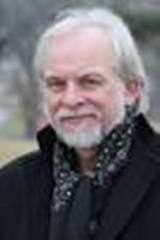|
Back
That Old-Fashioned Religion New York
Isaac Stern Auditorium, Carnegie Hall
11/02/2015 -
Juraj Filas: Requiem “Oratio Spei”
Susanna Phillips (Soprano), Matthew Plenk (Tenor), John Moore (Baritone)
Oratorio Society of New York Chorus and Orchestra, Kent Tritle (Conductor)

K. Tritle (© Jennifer Taylor)
Kent Tritle is a singular treasure in New York’s vast choral world. Passionate, disciplined, an artistic acolyte to Robert Shaw, he is also one of the more eclectic artists of our time.
Thus, it was no surprise that he has chosen to champion a Czech composer who, while popular in his own country, is rarely played here. Mr. Tritle’s Oratorio Society commissioned Filas’s Song of Solomon, gave the American premiere of the composer’s Requiem, with the choir of the Church of St. Ignatius Loyola, recorded it, and last night again presented the work for its Carnegie Hall premiere with the Oratorio Society of New York.
While the work was finished in 2002, the composer later, after the attacks on New York’s World Trade Center, asked for it to be dedicated to “the victims of terrorism, wherever it strikes.” Accordingly the work, while based on the classical Requiem Mass, is augmented by other Biblical texts, including words from the Book of Revelation.
Then too, Mr. Filas has made this work a “personal” piece where the chorus and soloists, “a dialogue between God and the soul who comes before him.” The same mystical links as philosopher Martin Buber’s basis of religion, “I and Thou.”
Dialogue might not be the right word musically. This Requiem not only is the path set by Verdi and Berlioz, but the musical character goes back one-hundred years. For 90 minutes, orchestra, three soloists and chorus sing, intone, bless and pray in a language which would hardly be considered alien by those 19th Century antecedents. Rather than a work written in this century, Mr. Filas’ Requiem harks back to those Gargantuan oratorios by Parry and Elgar in the voluminous stadiums of Edwardian London George Bernard Shaw used to rant about the military-sized forces employed to shout out Messiah, but loudness does have an effect.
Actually the first five measures by the orchestra offered hope: a mystical descent of lines echoing the finest religious works of Arvo Pärt. With a velvety soprano solo by Susannah Phillips, one feels that this work may work itself into the 21st Century cosmos.

J. Filas (© New York Czech Center)
That was not to be. Mr. Filas is a very conservative composer. His bitonal dissonances in the Confutatis maledictis are no worse than 18th Century discords means to show chaos. The pastoral section of the Offertory is used with harp and flute, the Sanctus–in a mirror image of Verdi’s double-fugue–was in fugal form. For the beginning of the Dies Irae, the orchestra stuck up measures which were echoes of the start to Mahler’s Second, to be performed later this week.
To his credit, Mr. Filas is highly melodic, virtually operatic. Thus, the piece was highly accessible. I doubt if many in the audience had heard it before (including this reviewer), but nothing was harsh, much was beautiful. As beautiful as a clever melody. The soloists were certainly up to the task, Ms. Phillips is being featured in lighter roles for the Met Opera, but she can hold her own in the beguiling upper ranges which must be sung here. Tenor Matthew Plenk is stentorian, and baritone John Moore brings his voice down to earthly size in his solos and ensembles.
To the credit of Mr. Tritle, the Oratorio Society (and orchestra) never let him down. The singing was constantly on pitch, dynamic, fiercely loud when necessary, and almost tender in the Lachrymosa sung with Ms. Phillips.
Hearing this for the first time, one had to feel this was–in both sense of the word–a very “well-made, well-crafted” piece of music. Mr. Filas’s emotional blood flows fast and hot, his more tender feelings are suitably delicate. On the other hand, excellent craftsmanship, even with a simulacrum of inspiration, isn’t quite enough.
His work is plainly old-fashioned, and one must admit that his fashion appeals to audience today who shun 20th Century. Mr. Filas and Mr. Tritle both feel comfortable presenting this to a conservative New York audience, and perhaps their satisfaction–not elation, but satisfaction–may well suffice.
Harry Rolnick
|